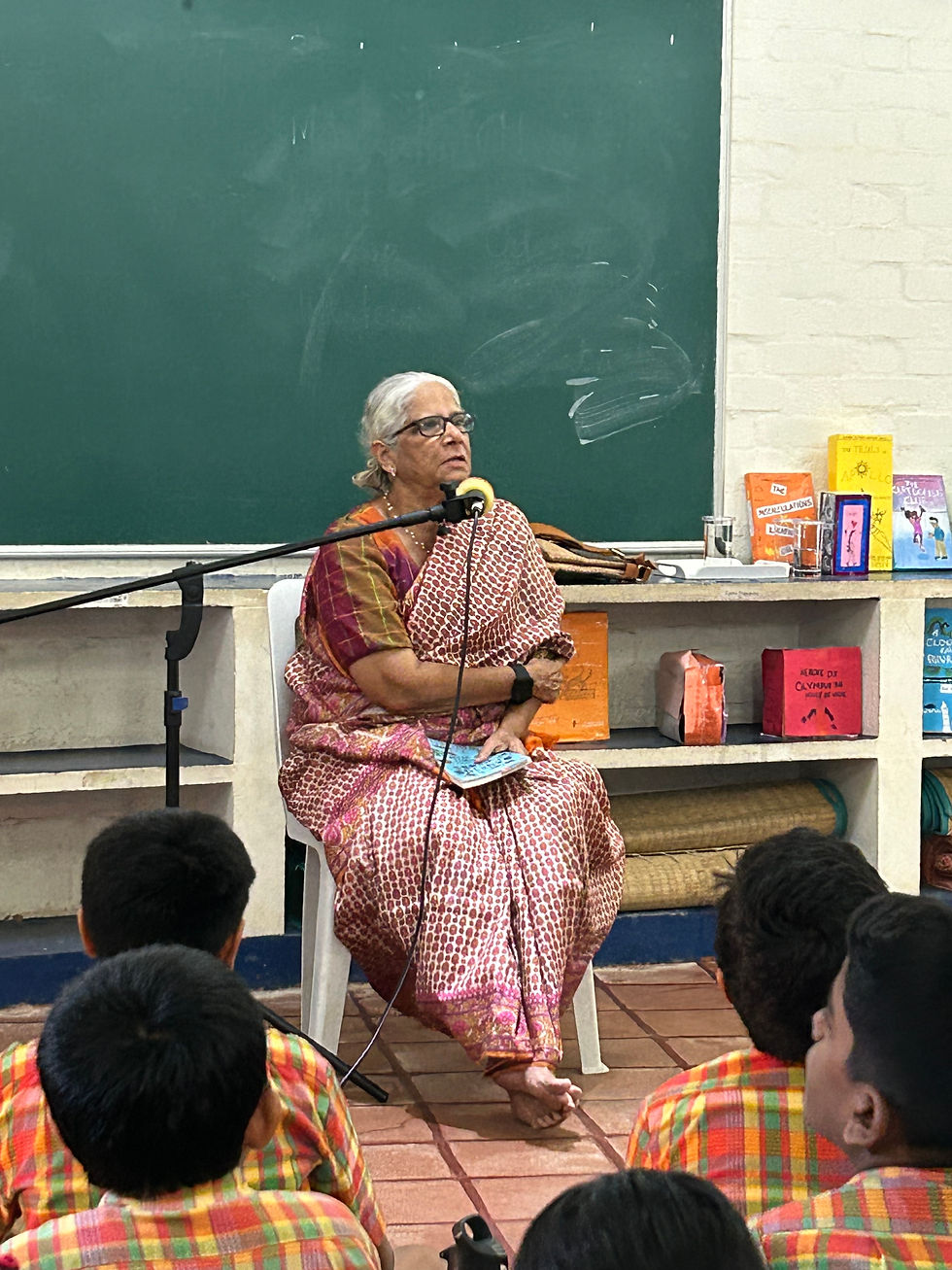The Elderly in Children's Literature...a few thoughts and a question
- JoAnne Saldanha
- Jun 7, 2023
- 3 min read

Picture Credit ....cover of 'Wilfred Gordon Macdonald Partridge" by Mem Fox
This post is a question, so bear with me till the end and I would love to hear your thoughts on this.
Maybe it’s because I have aged parents and I am at that stage in my life where I am just a couple of decades away from the same, that I am acutely aware of the vulnerability of the elderly and the need of support from family and society on the whole. I have become quite concerned about how we are portraying the aged in our children’s books.
It all started with a well loved, popular, award-winning picture book, which is beautifully detailed. However, I couldn’t help feeling like the entire book was making fun of an elderly person. This was a few years ago... buried this concern given the popularity of this book and the plaudits it has received from award committees, reviewers and just about everyone, really.
The next prod came from a chapter book written by an author who I hadn’t yet read and I wanted to familiarise myself with her work. The writing was just wonderful, the plot engaging and I was all set to sit down at the computer to write a glowing review. Then I came to the last chapter where the group of children who are the ‘heroes’ in the story plot revenge against the antagonists who happen to be elderly. Did these elderly deserve what was coming to them? Yes….they were just plain old mean, scheming and unfair!
However, what left me unsettled was that the revenge impacted the lives of these elderly, leaving them to live in fear…forever probably, because the story does not tell is otherwise. The children in the story, are delighted with this outcome.
I am someone who believes that respect must be earned and not automatically given…even to someone elderly. Yet, this ending left me unsettled.
I spoke with a friend about this and whether I was being far too sensitive. As she pointed out, our society is one in which ancestors and the elders in our family are respected…this is so much part of our being, that it naturally comes to the fore.
Which is why we may excuse a foreign author who writes about revenge on an elderly character, it may be taken as funny or leave us with a sense of justice (I couldn’t think of any book to mention here.)...but we may be more sensitive to those written by our own.
“The books children interact with are fundamentally influential in shaping not only how children perceive the world, but also their role within it and the daily decisions they must make.” - Schwarcz and Shannon (1986)
While in India our children probably have more connection with their grandparents, as compared to their western counterparts. However, as we move away for work and other reasons, this intergenerational contact is diminishing. We may visit at festivals and family events that are usually happy and celebratory. The daily contact that enables children to experience all facets of their grandparents personalities is absent.
Also as more and more of us outsource the caregiving of the elderly, children do not witness the empathy and connection for the elderly in our families, that we may have had as children.
If you live in an apartment building, I’m sure you’ve witnessed the tussle between the elderly
and the young with regard to usage of space or the noise etc. I have personal experience with the insensitivity and selfishness of a few neighbours in providing a ramp or just hosting community events in a space which facilitates the otherwise housebound, to attend.
How do we as adults be sensitive to the needs of all the different needs around us, and raise children who are so?
“Literature gives us images with which to think.” - Virginia Hamilton.
I cannot help but feel that we must leave children with writing/images which encourage positive associations with the elderly and a sense of responsibility as we share our space in the world with many different groups of people, with different needs…are we raised to think about this?
“The books children read and those read to them contribute to their intellectual, emotional, and social development. Moreover, these books provide examples that confirm and challenge the decisions of children‘s daily lives.” Shannon (1986)
What are your thoughts on this?
PS: I have the highest respect for both the authors of the books mentioned. Which is why I’ve chosen not to mention the titles.
If you have read them, you will know.
Yes, I will still read and promote their books….they are at the top of their game.
My post is to ask whether we need to be as sensitive to the elderly as we are to all the other in the spectrum of diversity.








Comments